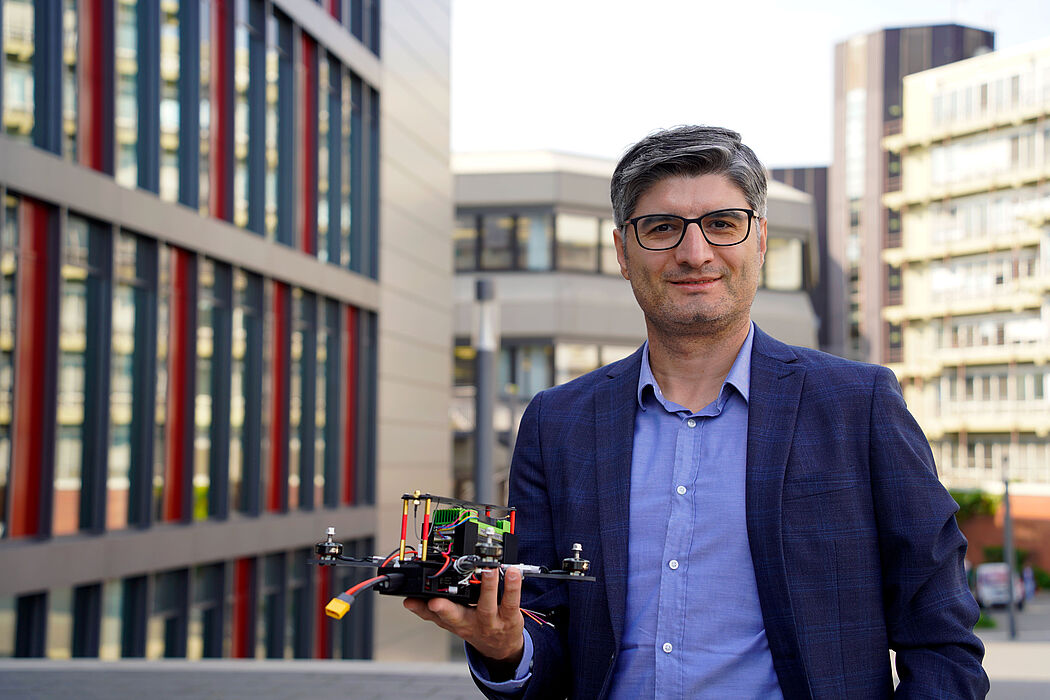Paderborn scientists involved in new EU project to further develop aerial robots
Aerial robots are already used for tasks such as checking wind turbines for damage, and can thus undertake vital tasks that would be hazardous for humans. To enable further areas of application and optimise the technology in the future, an international consortium is now seeking to research the use of artificial intelligence (AI) in drone development. This four-year project, involving researchers from Paderborn University, is receiving nearly eight million euros of funding from the European Union and will be starting in November. Around 740,000 euros of this will go towards research being conducted in Paderborn.
Technology meets nature
The aim of the project is to create aerial robots that can use AI to perfectly adapt to their task and environment, and thus are more efficient, robust and secure than previous models. Nature serves as the role model for this. ‘If you compare flying animals such as mosquitoes and eagles, there are significant differences on both a physical and a cognitive level. For aerial robots, on the other hand, thus far it feels as if there is a single standard design that is supposed to fit all possible applications. We need a paradigm shift towards aerial robots that are tailored to their environment and tasks’, notes Professor Erdal Kayacan, head of Paderborn University’s ‘Automatic Control Group’, which is involved in the project.
In the past, humans have designed the mechanical characteristics of aerial robots and the type and position of the sensors required. In the future, algorithms could be used to enable drones to develop and train themselves. In addition, innovative materials and improved propulsion systems are being included in the design process. Potential applications for these innovative aerial robots include monitoring forests and inspecting major critical infrastructure such as nuclear power plants or oil and gas facilities.
International consortium with individual subject areas
The Paderborn researchers’ expertise lies in proposing task-specific goal functions and creating scenarios for the associated simulations. ‘We want to begin by developing a mechanism for translating abstract objectives into algorithmic functions. This will be followed by an evolutionary simulation framework that can generate a variety of scenarios’, Kayacan explains.
As well as Paderborn University, the project also involves the Norwegian University of Science and Technology (project coordinator), Delft University of Technology (Netherlands), Luleå University of Technology (Sweden), Vrije Universiteit Amsterdam (Netherlands), the Interuniversity Microelectronics Centre (Belgium), ETH Zurich (Switzerland), the Center for Security Studies (Greece) and the companies VoxelSensors (Belgium) and Biodrone (Norway).

